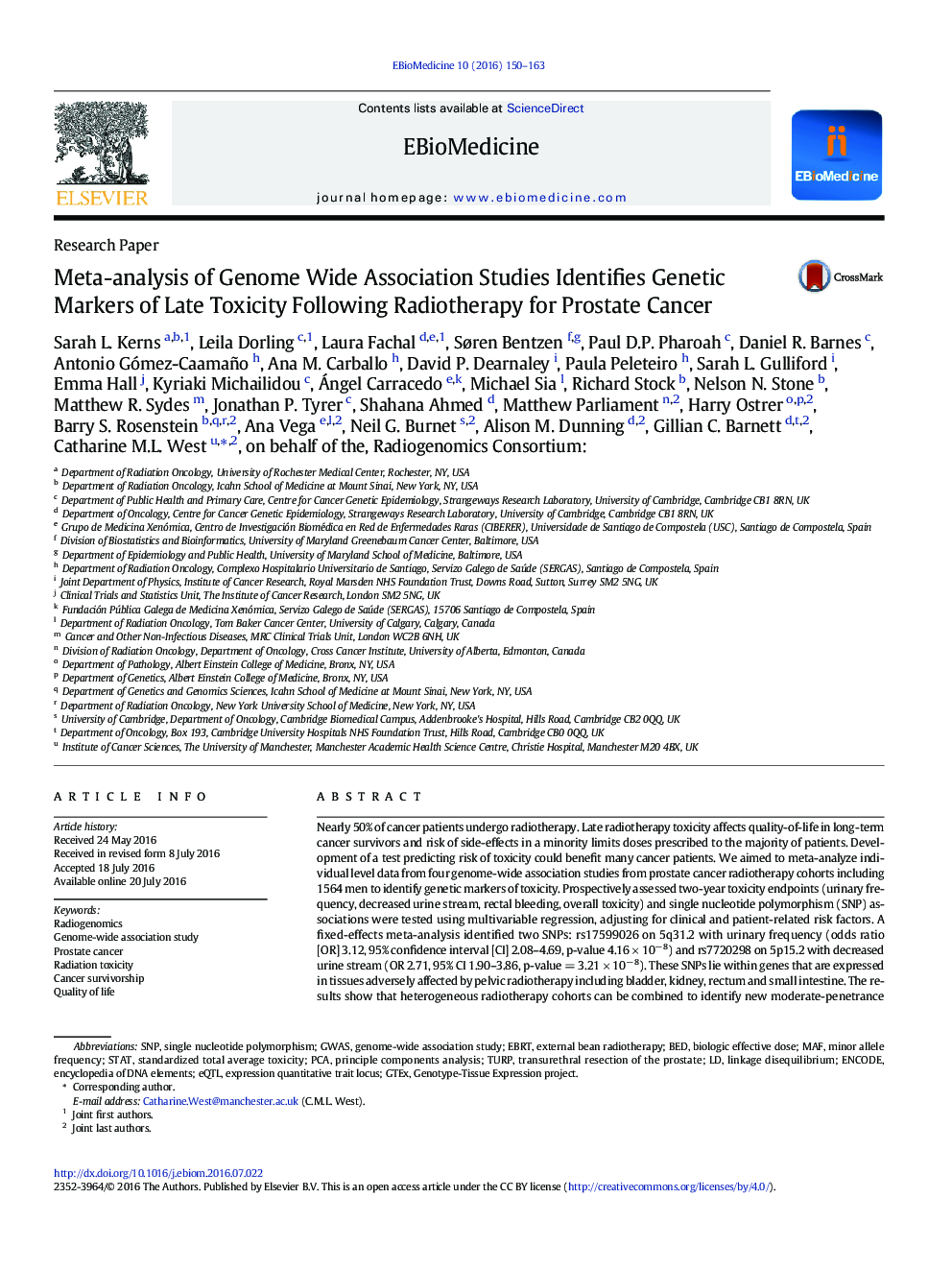| کد مقاله | کد نشریه | سال انتشار | مقاله انگلیسی | نسخه تمام متن |
|---|---|---|---|---|
| 2120627 | 1546889 | 2016 | 14 صفحه PDF | دانلود رایگان |
• SNPs rs17599026 and rs7720298 increase risk of urinary toxicity following radiotherapy in prostate cancer patients.
• Data from heterogeneous radiotherapy cohorts can be meta-analyzed to identify genetic variants associated with toxicity.
• A SNP-based predictive assay could improve the therapeutic index of radiotherapy and aid in individualization of cancer treatment.Risk of radiotherapy side-effects in a minority limits doses given to the majority. A test is needed to predict risks so treatments are personalized. Recent whole-genome studies in a few hundred patients found none or one genetic variant increasing side-effect risk. Larger studies are needed, but difficult because treatments differ between centers. Our study of > 1500 prostate cancer patients from four centers found two variants. The research shows combining heterogeneous radiotherapy datasets works and larger collaborative efforts identifying enough variants for a future test are worthwhile. As nearly 50% of cancer patients have radiotherapy, our work could benefit many people.
Nearly 50% of cancer patients undergo radiotherapy. Late radiotherapy toxicity affects quality-of-life in long-term cancer survivors and risk of side-effects in a minority limits doses prescribed to the majority of patients. Development of a test predicting risk of toxicity could benefit many cancer patients. We aimed to meta-analyze individual level data from four genome-wide association studies from prostate cancer radiotherapy cohorts including 1564 men to identify genetic markers of toxicity. Prospectively assessed two-year toxicity endpoints (urinary frequency, decreased urine stream, rectal bleeding, overall toxicity) and single nucleotide polymorphism (SNP) associations were tested using multivariable regression, adjusting for clinical and patient-related risk factors. A fixed-effects meta-analysis identified two SNPs: rs17599026 on 5q31.2 with urinary frequency (odds ratio [OR] 3.12, 95% confidence interval [CI] 2.08–4.69, p-value 4.16 × 10− 8) and rs7720298 on 5p15.2 with decreased urine stream (OR 2.71, 95% CI 1.90–3.86, p-value = 3.21 × 10− 8). These SNPs lie within genes that are expressed in tissues adversely affected by pelvic radiotherapy including bladder, kidney, rectum and small intestine. The results show that heterogeneous radiotherapy cohorts can be combined to identify new moderate-penetrance genetic variants associated with radiotherapy toxicity. The work provides a basis for larger collaborative efforts to identify enough variants for a future test involving polygenic risk profiling.
Journal: EBioMedicine - Volume 10, August 2016, Pages 150–163
